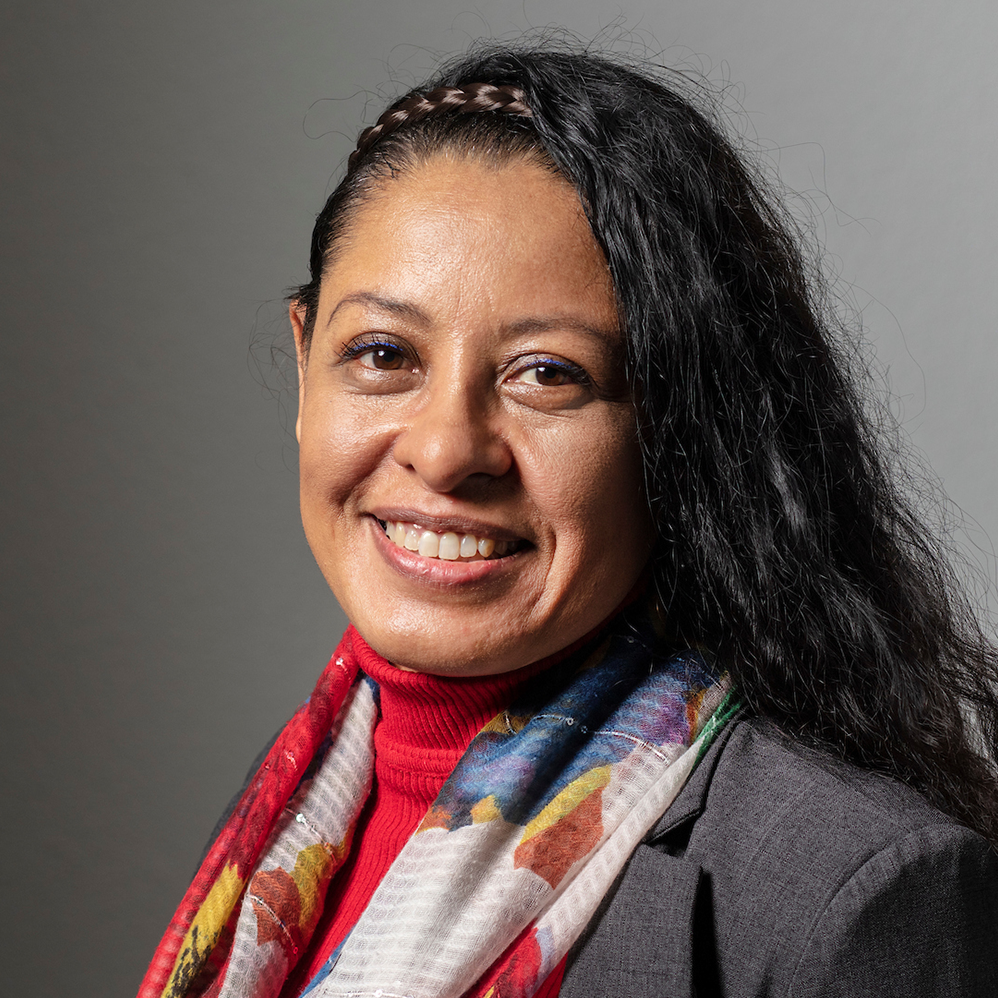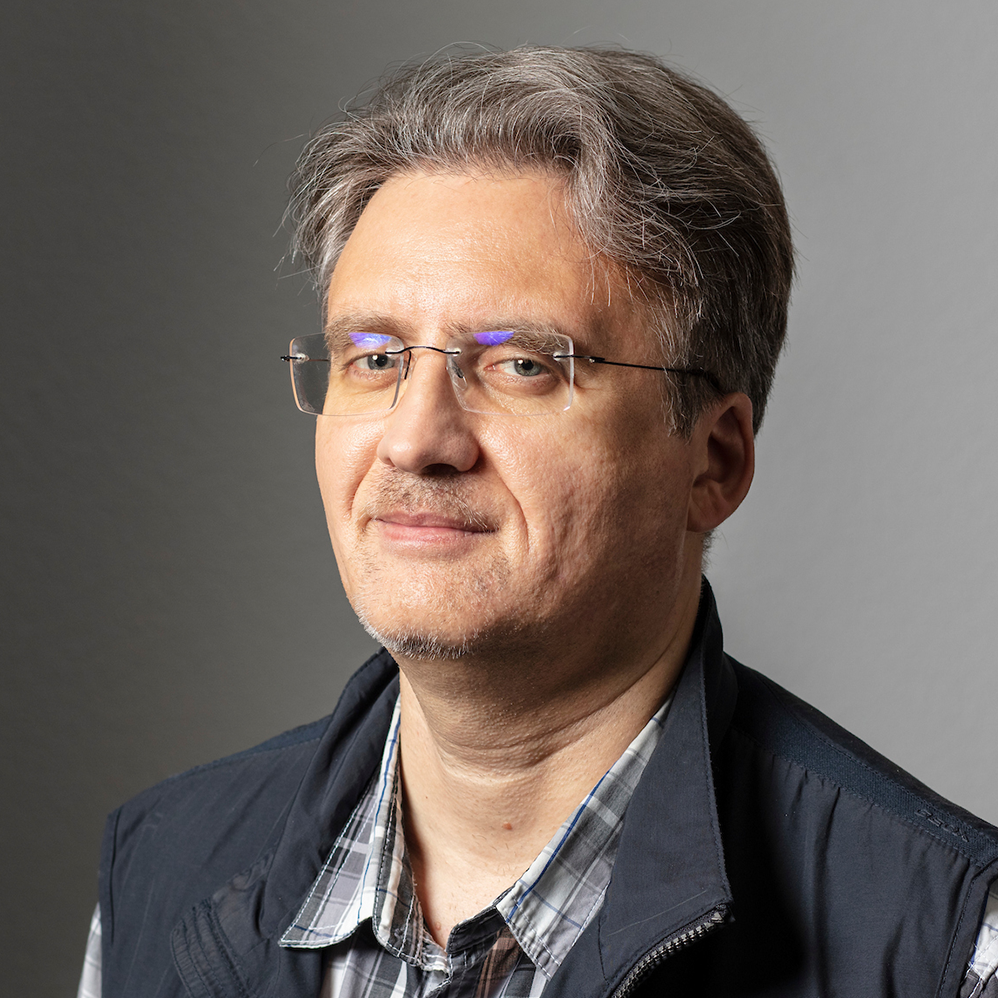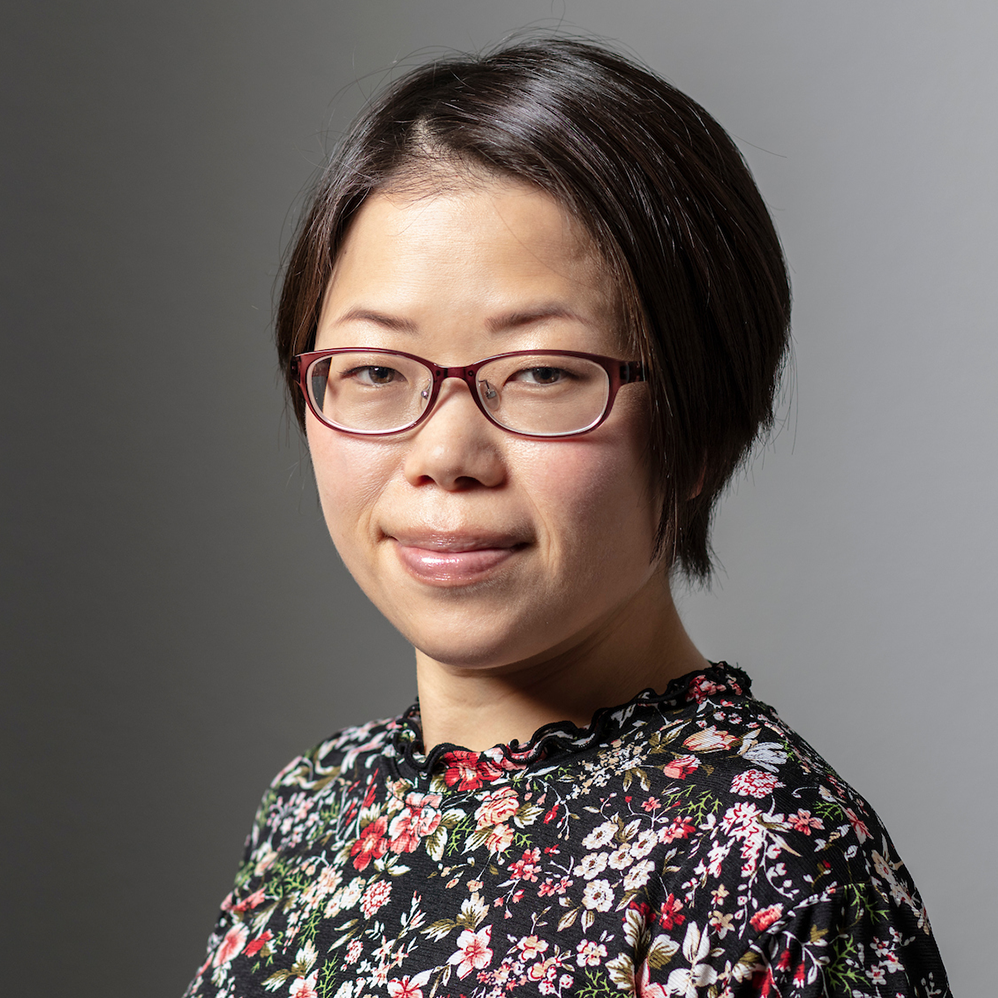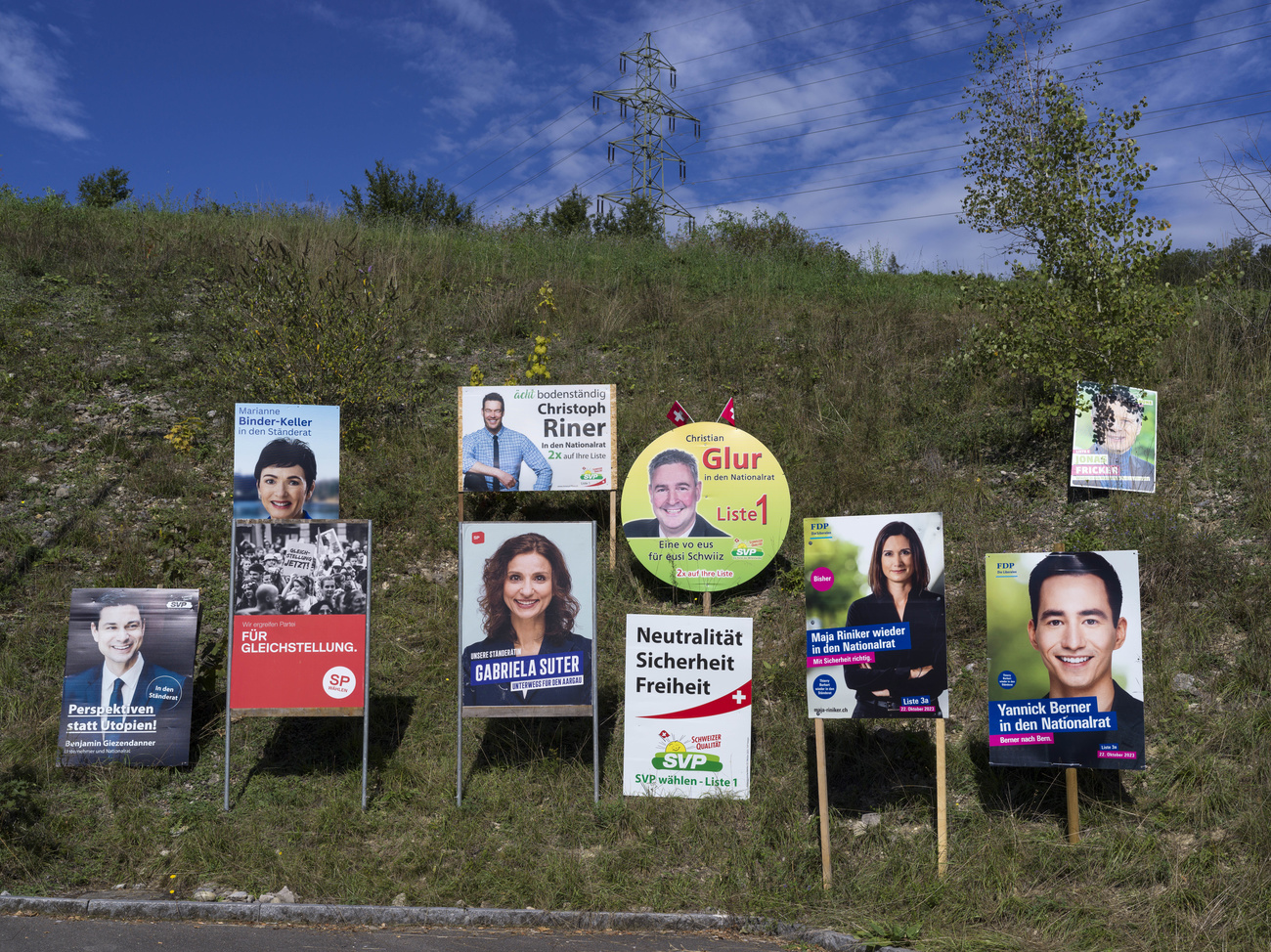Our global journalists on the stakes of Swiss elections

SWI swissinfo.ch journalists hail from across the globe. That gives them a unique insight on Switzerland and why the upcoming federal elections spark interest well beyond Swiss borders.
Employees from 15 different countries work at our offices in Bern. They all have international backgrounds and write about Switzerland day in, day out. Many of them have lived here for decades but have also kept up with current affairs in their home countries. Six of our journalists from Japan, the US, Tunisia, Russia, China and Mexico explain why Swiss elections are particularly interesting when compared to the political landscape of other countries.
Every four years the Swiss go to the polls to vote in federal elections. International media typically gives scant attention to this event as Switzerland is notoriously stable and political upheavals rare. But do Swiss elections deserve more attention? Our international journalists certainly think so.
‘Pulverisation of power versus telenovela’
Patricia Islas, Spanish language service
“The instruments of direct democracy take away the power from parliamentarians because we know that the people have the final say. This is how power gets pulverised in Switzerland.”
This was the response of a Swiss parliamentarian when, some time ago, two Mexican journalists and I asked how the political system worked in Switzerland. It is true that good election results are by no means a blind vote of confidence for the new government after parliamentary elections. The Swiss regularly use their right to veto against decisions taken by the legislature. Regular popular votes on initiatives and referenda give the Swiss the opportunity to express their opinions on decisions by the federal government or propose constitutional amendments.

I am from Mexico. More than 25 years ago, I asked a few Mexican media outlets whether I could work for them as a foreign correspondent in Switzerland. “Swiss politics is boring,” was the usual response to my inquiry.
It’s all a matter of perspective. It is true that Swiss elections cannot be boiled down to a single power struggle between two or three political figures. But that’s also what makes the Swiss system interesting to analyse. Compared to Mexico, the president in Switzerland has little clout. Once the Swiss people have cast their votes, parliament elects the federal government. It is a council of seven members who are affiliated with the strongest parties. This shows that consensus is very important in Switzerland, and political power is divided between several parties.
This could be the reason why not everyone in Switzerland knows the names of the members of government. Sometimes people don’t even know who holds the presidential office as this post rotates once per year among the members and is mainly symbolic.
The rotating presidency is another important feature of the Swiss system of power-sharing that makes Switzerland so different from other countries like Mexico where politics is almost like a telenovela.
More information on Patricia Islas.
‘In Switzerland, some things literally change on a daily basis’
Igor Petrov, Russian language service
Switzerland is a small and modest country. People here believe that the democratic system of their confederation is so complicated that it would be too difficult to explain to foreigners. But there is something paradoxical about it. Despite being at the heart of Europe; the leading power in economic globalisation; the main player in the global financial and banking centre; the hub for the headquarters of many international organisations; and a country with a powerful military-industrial complex, Swiss federal elections never seem to attract much attention, and hardly anyone outside the country knows the names of the leading politicians.

Let’s try to change that, and at the same time, try to explain why this is the case: the instruments of traditional representative democracy co-exist with the instruments of direct democracy. So, why is it that Swiss national elections do not bring much change? Because changes don’t only happen in Switzerland every four years; they literally happen every day. That’s because popular votes are regularly conducted at a national, cantonal and municipal level. Due to its direct democratic system, the election result of one party does not make a big difference in Switzerland.
It is more important how a party operates at all levels of the federal system – namely local, cantonal and national – on a daily basis during the time between elections. Thanks to regular popular votes and referenda, an election victory does not give the winning party carte blanche to do whatever it wants for the following four years. On the day after the elections, the parties are obliged to present the people with solutions to very specific problems. These are usually legislative proposals or initiatives which are then put to a referendum. So, it can happen that yesterday’s winner suffers a great defeat on the issue in question.
More information on Igor Petrov.
‘Switzerland runs the risk of becoming a ‘silver democracy’’
Tomoko Muth, Japanese language service
The term “silver democracy” has long been around in Japan. Due to the ageing population and the low election turnout among young people, the “politics of the elderly, made by the elderly and for the elderly” dominate Japanese elections. This makes it easier for ageing politicians and their parties to win and implement their policies. As the high costs Japan spends on social welfare put a burden on public finances, reforms to cut public spending for elderly people have been postponed while young people face rising taxes and insurance premiums. Young people in Japan have no prospects, and the birth rate continues to be on a downward spiral. It is a vicious circle.

I am not worried that democracy in Switzerland will move in the same direction. In this year’s election campaign, the left-wing Social Democrats demand to extend public childcare while the biggest party, the Swiss People’s Party, is clearly against it. Polls on the most pressing issues have shown that “health insurance premiums”, “immigration” and “pension reforms” are on top of the list of concerns. “Family policy” does not even get mentioned.
How come there is such a lack of interest in family policy? Is the low birthrate not an important issue for Switzerland? After all, it attracts immigrants looking for higher wages, a better standard of living and a more stable political and economic environment. And don’t they think it is important to elect politicians to parliament who are interested in the needs of young people given that political issues are decided upon at the ballot box in Switzerland? These questions remain unanswered.
I have a hunch that Switzerland runs the risk of becoming a silver democracy. The percentage of elderly people in the Swiss population in 2022 was 19.2%. This was lower than the percentage in Japan, which was 29.1%. However, the share of foreigners aged 18 and older who are not eligible to vote stands at 26% in Switzerland. This means that the electorate is significantly older, and at 23.1% is almost as high as it was in Japan in 2010.
Will Switzerland manage to avoid becoming a silver democracy? If it does, it could be another prime example for all developed countries with an ageing society.
More information on Tomoko Muth.
‘I’m eager to participate in the democratic process’
Amal Mekki, Arab language service
I still remember with much nostalgia when I first participated in parliamentary elections at the age of 22! These were not the first elections held in my country, Tunisia. But they were the first free, democratic, and transparent elections. So, I happily dipped my finger in blue voting ink and shared the photo on social media. It wasn’t just a political exercise; it was a celebration! I felt the weight of history when I cast my ballot as I knew that I was contributing to a democratic process that embodied the hopes of generations before me as well as my own generation. Now that I live in Switzerland, I am eager to participate in the democratic process.

A quarter of the Swiss population, including me, is not allowed to vote in parliamentary elections. As Switzerland is approaching parliamentary elections in October 2023, the approximately 2.3 million foreigners who permanently live in the country will not receive invitations to participate in the electoral process. Only Swiss citizens are eligible to vote at the federal level.
Some might argue: why would a foreigner like me be interested in Swiss federal elections? Apart from the obvious answer that I am a journalist who works in Switzerland, the answer to this question goes beyond the country’s borders. The importance of these elections, and the ones to come, resonates with the families of immigrants – men and women – wherever they are. For families, the political orientations of Switzerland, the features of which are decided in the federal assembly, can shape the future or even determine the destinies of thousands of people, especially concerning immigration and international cooperation. This is the core of Switzerland’s global importance. It is not only about internal politics but about the repercussions of those policies on people’s lives outside.
Though I’m currently not eligible to cast my vote, I remain vigilant and closely observe the upcoming elections in October 2023. Standing outside the democratic arena, I do what those who are side-lined often do: I nourish the dream that I will one day be allowed to join this democratic dance.
More information on Amal Mekki.
‘The Communist party is more prominent in the Chinese constitution than ‘God the Almighty’ is in the Swiss constitution’
Chinese language service
In Switzerland, parties have a completely different role than what is known in China.
In the preamble to the Chinese constitution, the “Communist Party of the People’s Republic of China (CCP)” is more prominent than “God the Almighty” is in the preamble of the Swiss constitution. While article 1 of the Swiss constitution lists all 26 cantons that form the Swiss confederation, article 1 of the Chinese constitution makes clear that the socialist system is the fundamental system of the People’s Republic of China and that the leadership by the Communist Party defines Chinese socialism.
The office of the General Secretary of the CCP has absolute power in China while the political power of the general secretaries and presidents of Swiss parties depends on how persuasive they are in the elections. The legal status of political parties in Switzerland is rather weak. It was only in 1999 that a small article (Art. 137) on the status of the political parties was added to the constitution, which says: “The political parties shall contribute to forming the opinion and the will of the people.” However, we never talk about one party’s relationship with the state in Switzerland because there are so many different parties. Eleven parties are represented in parliament, four of which are also represented in the government.
The party landscape in Switzerland is constantly changing. Parties come and go, some merge, others change their name, and some remain the same. All parties must repeatedly stand their ground when it comes to political concepts and the fight for their voters’ share. They have to convince their voters by offering good solutions to the issues that concern the population. At the end, the voters decide, and sometimes they have no mercy when they are not happy with a party’s performance.
‘Growing polarisation is a worry’
Jessica Davis Plüss, English language service
The United States and Switzerland have a lot in common. They are both proud of their democracies and the enshrined right to vote. Increasingly, they have something else in common – growing polarisation.

“No forum seems too small or too sleepy to be polarised” in the US. This is a direct quote from The New YorkerExternal link a couple years ago. Over the last decade, an “us vs. them” mentality has cast a dark cloud over the US, pervading nearly every area of life – from the halls of the Capitol Building to the family dinner tableExternal link. Such extremes have for a long time seemed far away from Switzerland’s multi-party and consensus-based system: Switzerland has six main parties and a dozen smaller ones jockeying for seats in parliament.
But there are signs people in Switzerland are also moving farther into their different poles. One recent surveyExternal link revealed people fear the population is breaking up into ever smaller groups that are increasingly irreconcilable towards one another. As one Swiss friend told me: “Everything seems very black and white these days”.
Some say the Covid-19 pandemic was a turning point in Switzerland. This drew new and sharper dividing lines between groups of people.
This isn’t just about policies or positions on issues – such diverse views are normal in a democratic society. Today’s polarisation in both countries is emotional and tied to a growing intolerance towards people with different points of view. While some of the issues that divide people may be different – for example, abortion is a much more divisive issue in the US than in Switzerland – in both places, I find people are increasingly quick to judge someone’s character based on whether they are for or against an issue.
Switzerland hasn’t reached the extremes seen in the US, but nevertheless growing polarisation in a country with multiple parties and high levels of trust in public institutionsExternal link is unsettling.
Polarisation isn’t good for countries or democracies. It means people stop talking to each other. They stay in their echo chamber, stifling debate and preventing new ideas from coming to the fore.
It can also make people disillusioned with politics altogether. When voters see politicians more focused on drawing dividing lines than on finding solutions, they are likely to look for answers elsewhere retreating to their “camps” and perpetuating the cycle.
As the federal elections approach, how Switzerland deals with polarising politics will send a message to the US and democracies everywhere.
More information on Jessica Davis Plüss.

More
Swiss election campaigns: ‘much more eventful than people imagine’

In compliance with the JTI standards
More: SWI swissinfo.ch certified by the Journalism Trust Initiative













You can find an overview of ongoing debates with our journalists here . Please join us!
If you want to start a conversation about a topic raised in this article or want to report factual errors, email us at english@swissinfo.ch.